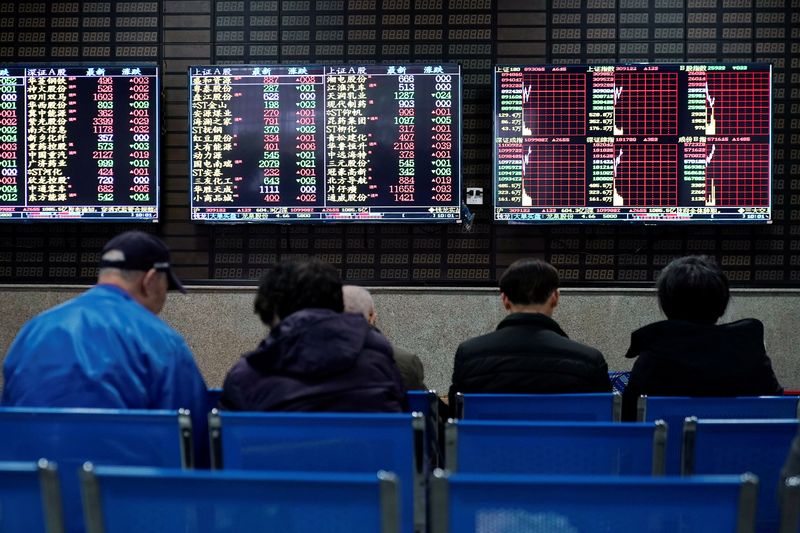By Summer Zhen and Jiaxing Li
HONG KONG (Reuters) - Chinese investors are buying up large amounts of Hong Kong mutual fund products that invest overseas, particularly in bonds, after authorities expanded a cross-border trading channel this month and opened an avenue to get better yields.
Several mutual funds that are registered in Hong Kong and allowed to market products to mainland investors were sold out within 24 hours of opening for subscription at the beginning of the year, fund statements show.
The funds had reopened for subscription in the past week after China relaxed limits for Hong Kong funds that are approved to sell on the mainland under the Mutual Recognition of Funds ( MRF (NS:MRF)) scheme. It lifted the sales quota to a maximum of 80% of the funds' total assets from Jan. 1 from the previous 50% limit.
The investment frenzy points to pent-up demand in China for overseas investments at a time when bond yields are hitting record lows at home, the yuan is at 16-month lows, and the stock market is struggling.
"We've seen robust demand for overseas fund allocations, given the outperformance of overseas markets in the past two years," said Niki Wu, senior research analyst at Morningstar, based in Shenzhen.
Funds that focus on U.S. Treasuries and other bonds seemed most popular with investors.
Two bond funds run by JPMorgan - JPMorgan Global Bond Fund and JPMorgan Asian Total (EPA:TTEF) Return Bond Fund - had to suspend subscriptions by mainland investors this week after nearing their limits.
Last week, ChinaAMC's Select Fixed Income Allocation Fund and E Fund (HK)'s Select Bond Fund found their new quotas were used up on the first day of resuming subscriptions.
Wu said the recent rapid decline in bond yields has led to the clamour for assets.
The yields on China's 10-year government bonds have dropped more than 100 basis points in a year, and are below 1.6%, with the gap between them and U.S. Treasuries the widest in 24 years.
"It's really hard to find assets with relatively high yield and low risks," she said.
First introduced in 2015, the MRF has long been a relatively niche scheme due to restrictions on fundraising.
By the end of November, there were a total of 41 Hong Kong funds participating in it, official data shows, with aggregated sales amounting to 41.5 billion yuan ($5.66 billion), a 138% jump compared to that at the end of 2023.
Ivan Shi, head of research at fund consultancy Z-Ben Advisors, described the MRF as a "release valve", given the scarcity of quotas in the Qualified Domestic Institutional Investor (QDII) program.
Investors have also been taking money out of China via the QDII program, the nation's key outbound investment channel.
On Thursday, the price of the S&P 500 consumer exchange-traded fund shot up to more than 40% above its net asset due to quota limits, triggering risk warnings from its fund manager and a trading suspension.
Assets of funds under the QDII program have ballooned to roughly 600 billion yuan, almost double that of two years ago, the latest official data showed.
With an overall fund sales quota of 300 billion yuan available to mainland investors, the MRF scheme is poised to attract more global funds.

"Some global firms, which have hitherto not been interested in this scheme at all, have started to work on it," said Sally Wong, chief executive officer of Hong Kong Investment Funds Association.
($1=7.3316 yuan)
